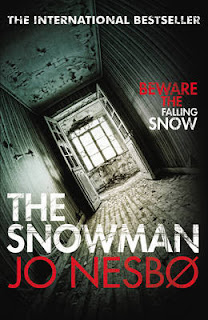Eliot Pattison is the winner of an
Edgar Award and finalist for the Gold Dagger for his book The Skull
Mantra. His most recent one is
titled Ashes of the Earth: A Mystery of Post-Apocalyptic America. Usually, I
would get the hell away from a title like that. But Pattison’s good reputation and
the fact that I’d read some of his earlier novels were enough to convince me to
give it a try. I’m glad I did.
The story takes place in
Carthage, a colony of 12,000 survivors near the Great Lakes, thirty years after
a chemical war has devastated most of the world while killing the majority of
its population.
The main character, Hadrian
Boone, is a former founder of this colony. He is now disillusioned and embittered
by how everything is managed. He spends most of his time in bouts of depression
and heavy drinking and ends up in prison-stints of various lengths for
rebelling against the government. Then one day his best friend, Jonah Beck, a
scientist/librarian/keeper of records, and thus one of the most important men
of Carthage, is found dead. Beck apparently hung himself from a
rafter in his office at the library.
While haunted by ghosts of people
and events of his past, Boone decides to investigate his friend’s death,
convinced that he was murdered. Looking for the killer or killers, Boone follows
clues that will soon reveal much more than he could have imagined; it’s a path
towards something that might be too complex and powerful for him to face alone. Something that could decide the fate of Carthage and possibly
even destroy it.
The colony is a work-in-progress
–we can imagine others scattered all over the planet—run by an authoritarian
government with a man named Lucas Buchanan at the top. Buchanan is also one of
the former founders of the colony but his and Boone’s paths have diverged
drastically at some point. One of the reasons they did was the decision to force into
exile all those still contagious and too sick or weak to be of any help in
rebuilding the colony. Boone and Beck secretly made trips to that
rejected settlement to bring medecine, food and other supplies.
Vestiges of the past are kept
away from Carthage as much as possible to help maintain the focus towards the
future. A government slogan in the town square underlines this: “We have not
lost our history. We are free of history.”
How can you go forward if you keep
looking back, right? That is what lies at the center of the dilemma between
survivors who remember the former world: what do we do with our past? Do we use
it to build our future or do we try to erase and forget it entirely. But if you
wander outside of the colony, you find the former world and its technology
everywhere. As Jonah once told Hadrian: “The Dark Ages had to come before there
could be a Renaissance.” But the government sends ‘scavengers’ on secret missions to find ‘salvage’, or remnants of the old world.
While drug trafficking and other
criminal activities are rampant, conflicts arise between and within
generations: on one side, some want
to forget the past mostly because of the painful memories about loved ones who
died, and on the other side some want to try to get back to their previous
lives, or at least whatever they can retrieve from it. Among those who never
knew the old world, there are some who’d prefer to focus on building a
brand-new world versus those, mostly kids, who are attracted by the beautiful
world of the past they’ve heard about. Spreading rumours mention it still exists but you can
only access it by committing suicide; many kids are convinced that by hanging
themselves they will fall asleep and then wake up on the other side. Who's bringing them toys and objects in perfect condition from the old world? Who would gain from the deaths of the kids of Carthage? What did Jonah Beck knew that got him killed?
Eliot Pattison has created an
intricate and engrossing mystery plot within an intelligent and realistic depiction
of a possible future for our planet if ever a chemical war or any other
apocalyptic event might befall us. As the author explains in the afterword:
“Endings of worlds have occurred throughout human history. Some have been
abrupt, (…). Some have been gradual, (…). But none have encompassed all of
humankind. (…). This novel is certainly not meant to be a prophecy, but
implicit in its backdrop are predictions about the state of technology and
science after such universal destruction.”
With complex characters having to
make difficult choices and take quick decisions that can decide their fate or
that of others, Ashes of the Earth is filled with enough twists and surprises
to keep readers engrossed until the suspenseful ending. It is a world sometimes
as bleak as the one in McCarthy’s The Road but with Pattison’s personal view
and interpretation. It is filled with hope while also sending a serious warning
of what the future might hold for humankind.
A departure from his two previous
series and the Tibetan world, Pattison here has found a rich territory to
exploit: that of the colony of Carthage and the many interesting characters
worth visiting again. If this novel is the start of a new series for Eliot
Pattison, please bring me the next one.
JF
August 2011
(read from finished HC copy)
-30-






